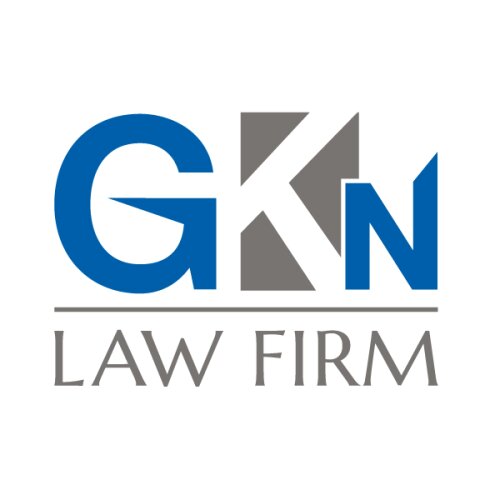Best Antitrust Lawyers in Australia
Share your needs with us, get contacted by law firms.
Free. Takes 2 min.
Or refine your search by selecting a city:
List of the best lawyers in Australia
About Antitrust Law in Australia
Antitrust law in Australia, commonly referred to as competition law, is designed to promote fair competition and prevent anti-competitive conduct in the marketplace. The primary legislation governing antitrust matters is the Competition and Consumer Act 2010 (CCA), which is overseen by the Australian Competition and Consumer Commission (ACCC). The law aims to ensure that markets operate effectively and that businesses and consumers can participate in the economy without unfair restrictions or practices. Key provisions include prohibitions on cartel conduct, exclusive dealing, misuse of market power, and anti-competitive mergers.
Why You May Need a Lawyer
There are several situations where individuals or businesses might need legal advice related to antitrust law in Australia:
- Being subject to investigation by the ACCC for potential contravention of competition laws.
- Involvement in mergers or acquisitions that may raise competition concerns.
- Entering into contracts or agreements that could inadvertently breach competition laws.
- Experiencing anti-competitive conduct from competitors or suppliers, such as price fixing or market allocation.
- Needing to understand obligations under existing antitrust laws and compliance programs.
Local Laws Overview
The Competition and Consumer Act 2010 is the cornerstone of antitrust regulation in Australia. Key aspects include:
- Cartel Conduct: Prohibited activities include price fixing, sharing markets, rigging bids, and controlling the output of production.
- Misuse of Market Power: It is illegal for businesses with substantial market power to take advantage of that position to harm competitors or the competitive process.
- Exclusive Dealing: Restrictive practices that limit freedom to deal with others are prohibited if they substantially lessen competition.
- Mergers and Acquisitions: Transactions that substantially lessen competition may be challenged or prevented by the ACCC.
- Resale Price Maintenance: It's unlawful to dictate the price at which a product or service should be sold by another business.
Frequently Asked Questions
What is the role of the Australian Competition and Consumer Commission (ACCC)?
The ACCC is an independent statutory authority that enforces the Competition and Consumer Act. It regulates, promotes, and encourages competition and fair trade in order to benefit consumers, businesses, and the community.
What constitutes a breach of antitrust law in Australia?
Breaches may include agreements or practices that restrict free trading and competition between businesses, such as price fixing, market division, or bid-rigging.
How can a small business ensure compliance with antitrust laws?
Small businesses can ensure compliance by understanding their obligations under the CCA, seeking legal advice, participating in compliance programs, and monitoring business practices to avoid anti-competitive behavior.
Can individuals be held liable for contravening antitrust laws?
Yes, individuals, including directors and managers, can be personally liable for breaches of the CCA, and face penalties including fines and disqualification from managing corporations.
What defenses are available against allegations of anti-competitive conduct?
Defenses may include proving the alleged conduct didn’t substantially lessen competition or that it resulted in public benefit outweighing any competitive harm. Legal advice should be sought for specific defenses.
Are all mergers subject to ACCC approval?
Not all mergers require ACCC approval, but any merger that has the potential to substantially lessen competition is subject to review and possibly intervention.
What penalties can be imposed for breaching antitrust laws?
Businesses can face significant financial penalties, while individuals can face fines and disqualification from corporate roles. Serious breaches may also lead to criminal charges.
Is it possible to get an exemption from antitrust laws?
Yes, businesses can apply for authorizations or notifications for certain conduct that might otherwise breach the CCA if it can be demonstrated that the public benefit outweighs any anti-competitive detriment.
What should a business do if it suspect it's been the victim of anti-competitive conduct?
Businesses should document the conduct, seek legal counsel, and possibly report the matter to the ACCC for investigation.
Is legal advice necessary for understanding antitrust laws?
Given the complexities of competition laws and the significant penalties for breaches, obtaining legal advice is highly recommended to navigate compliance and defend against allegations.
Additional Resources
Those seeking further information on antitrust laws in Australia can refer to the following resources:
- Australian Competition and Consumer Commission (ACCC): Offers guidance, case studies, and information about compliance and consumer rights.
- The Australian Government Federal Register of Legislation: Provides access to the full text of the Competition and Consumer Act 2010.
- Australian Institute of Company Directors: Offers advice and resources on corporate governance practices.
- Law Society of your respective state or territory: Provides directories of legal practitioners and resources for understanding local legal obligations.
Next Steps
If you require legal assistance in antitrust matters, consider the following steps:
- Identify and document your specific circumstances and any evidence related to your concerns.
- Research and contact a lawyer or law firm with experience in competition law and the relevant industry sector.
- Prepare questions for your legal counsel to ensure all aspects of your case are addressed.
- Stay informed about any changes in competition laws and ensure ongoing compliance.
- If involved in potential litigation or an investigation, cooperate with relevant authorities and follow your lawyer's advice thoroughly.
Lawzana helps you find the best lawyers and law firms in Australia through a curated and pre-screened list of qualified legal professionals. Our platform offers rankings and detailed profiles of attorneys and law firms, allowing you to compare based on practice areas, including Antitrust, experience, and client feedback.
Each profile includes a description of the firm's areas of practice, client reviews, team members and partners, year of establishment, spoken languages, office locations, contact information, social media presence, and any published articles or resources. Most firms on our platform speak English and are experienced in both local and international legal matters.
Get a quote from top-rated law firms in Australia — quickly, securely, and without unnecessary hassle.
Disclaimer:
The information provided on this page is for general informational purposes only and does not constitute legal advice. While we strive to ensure the accuracy and relevance of the content, legal information may change over time, and interpretations of the law can vary. You should always consult with a qualified legal professional for advice specific to your situation.
We disclaim all liability for actions taken or not taken based on the content of this page. If you believe any information is incorrect or outdated, please contact us, and we will review and update it where appropriate.
Browse antitrust law firms by city in Australia
Refine your search by selecting a city.
















